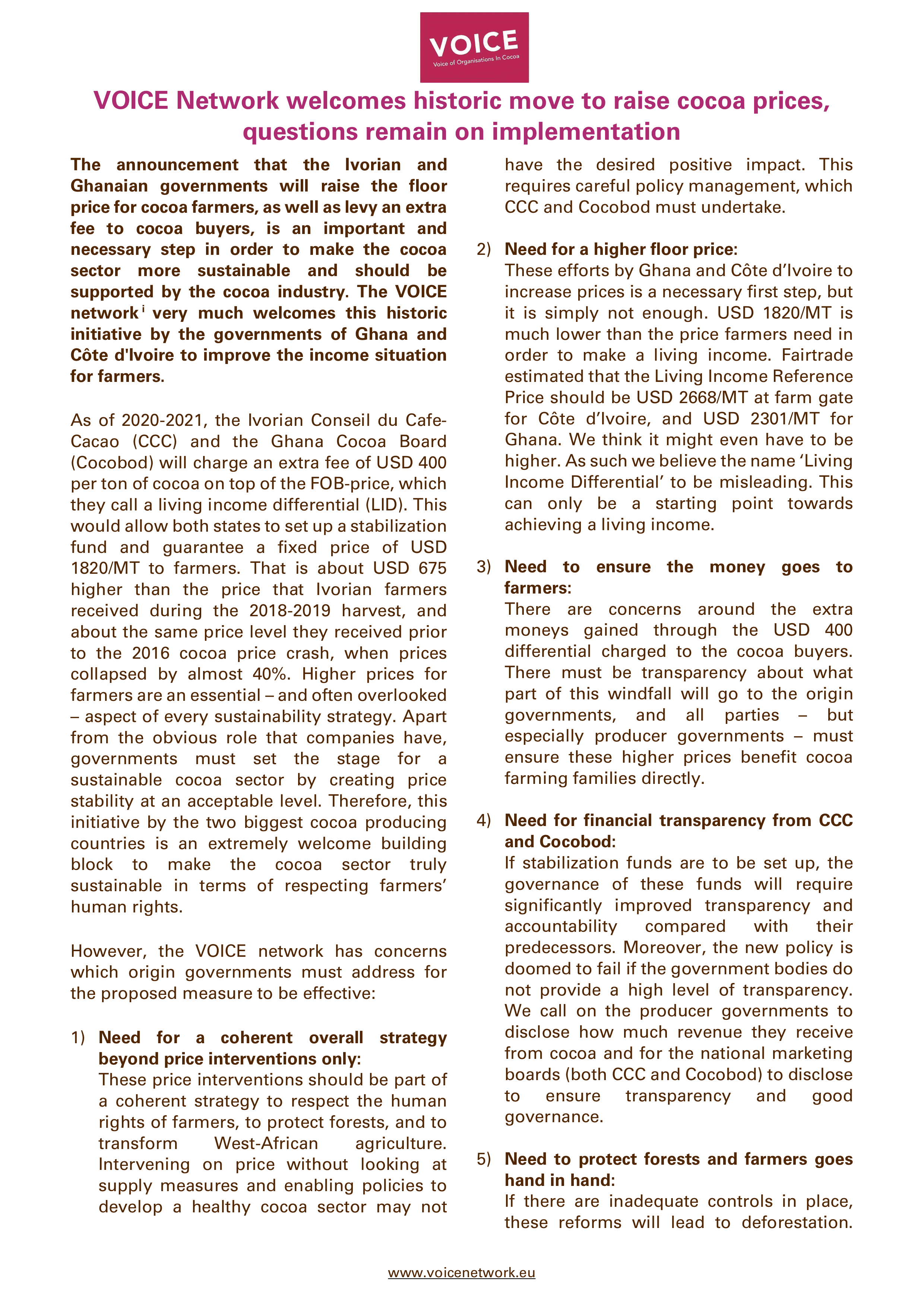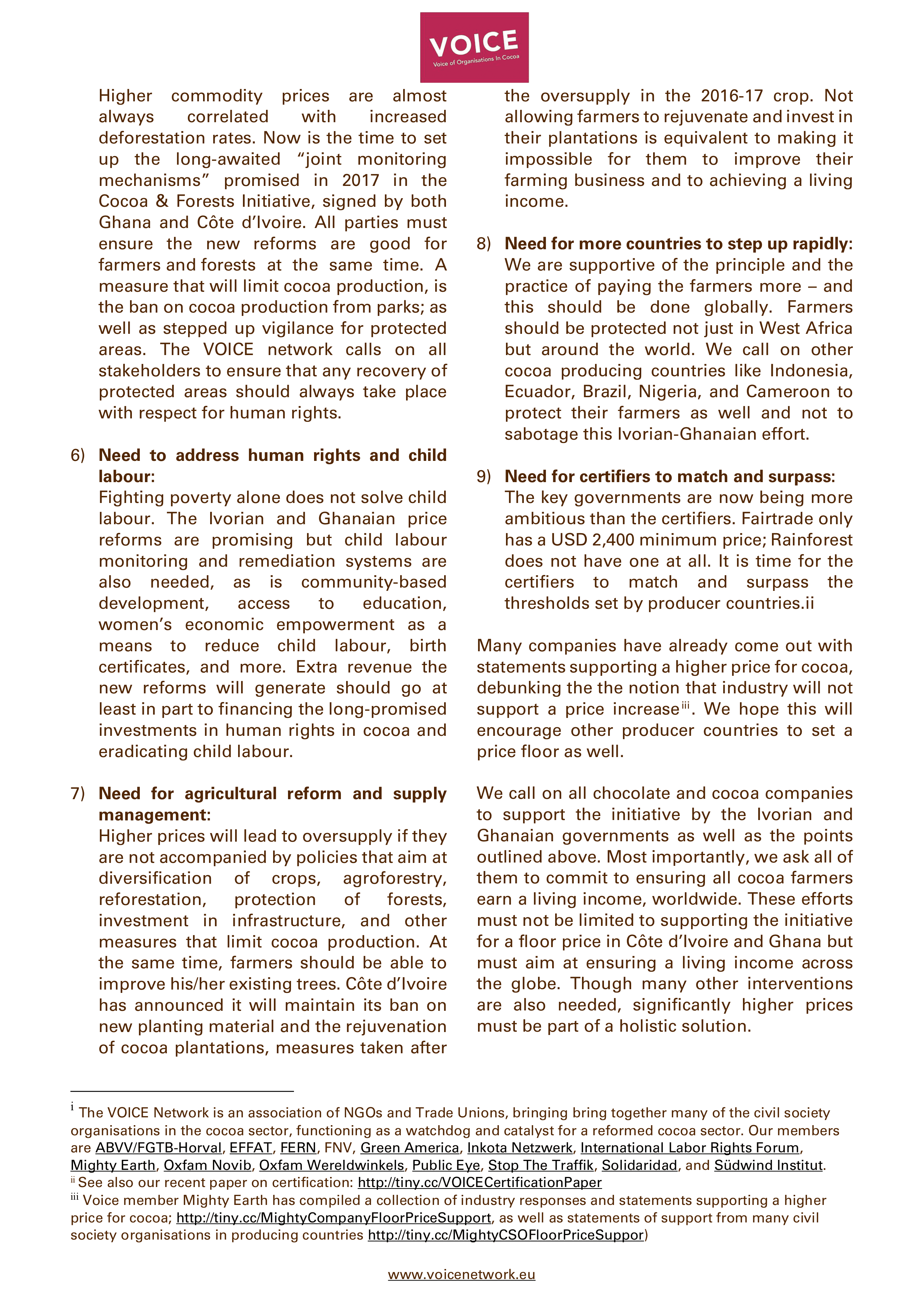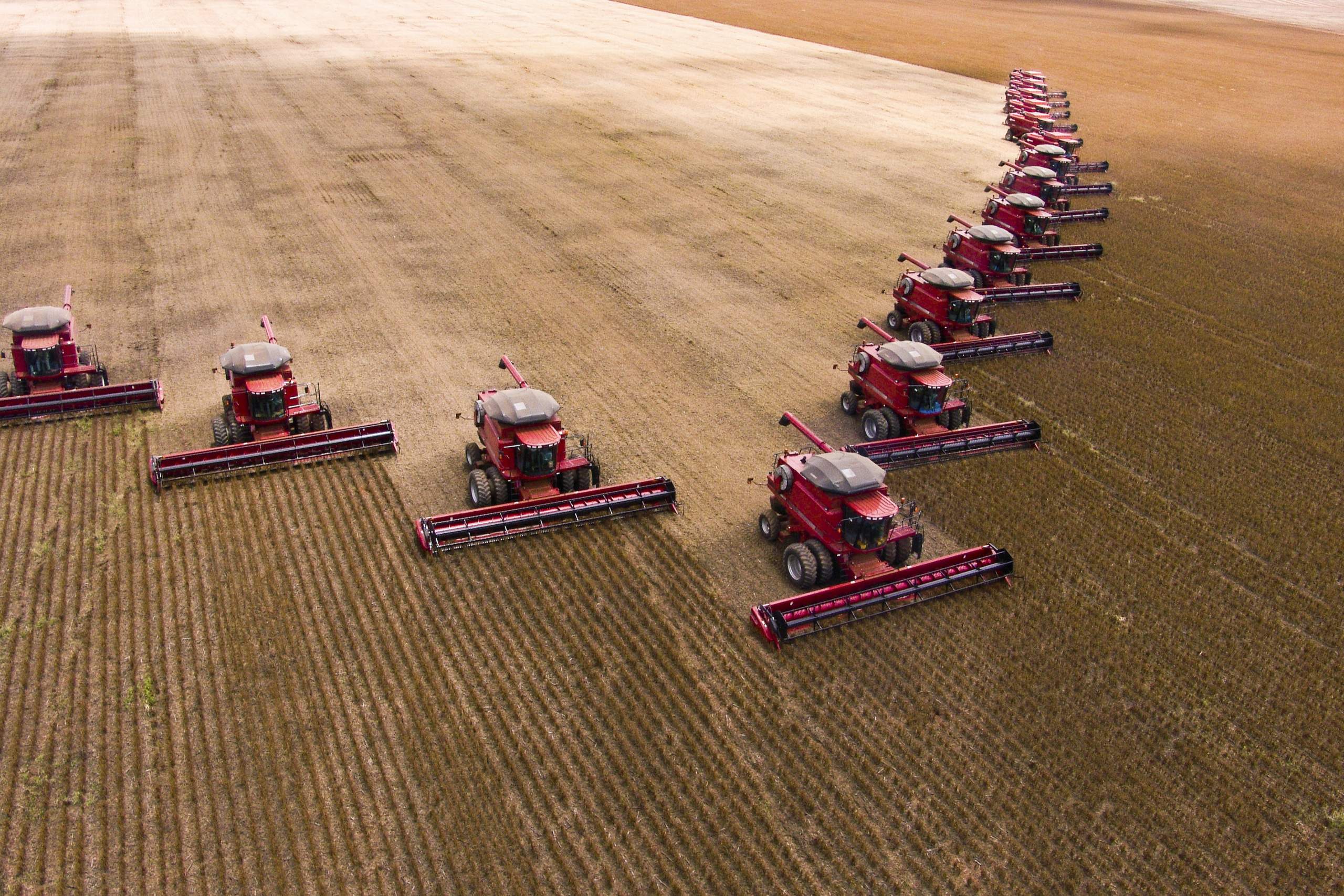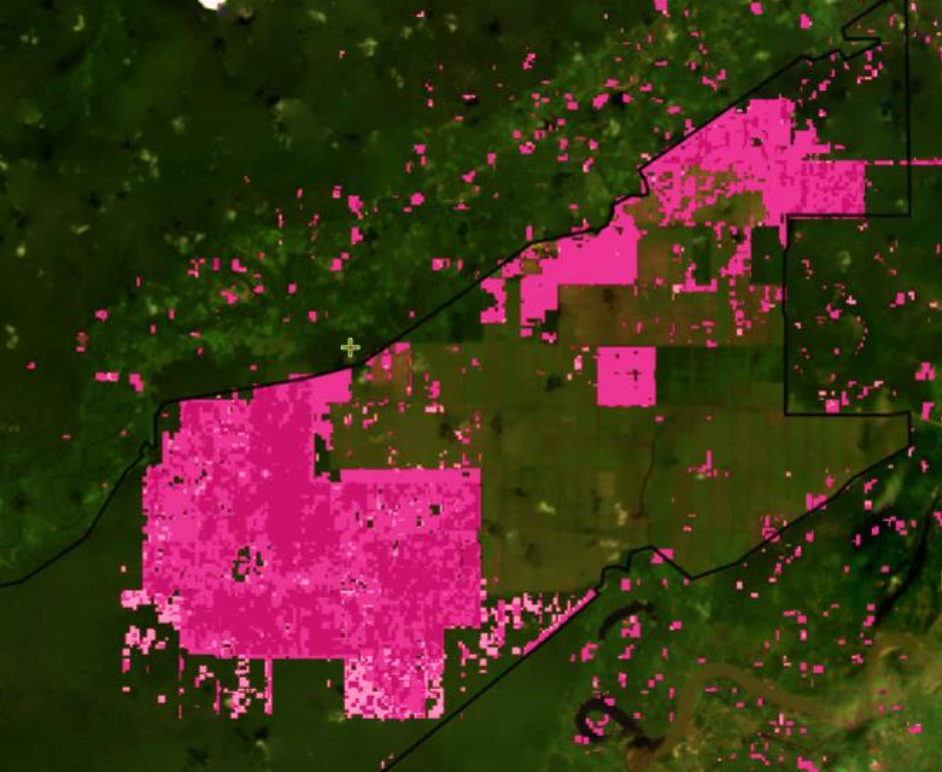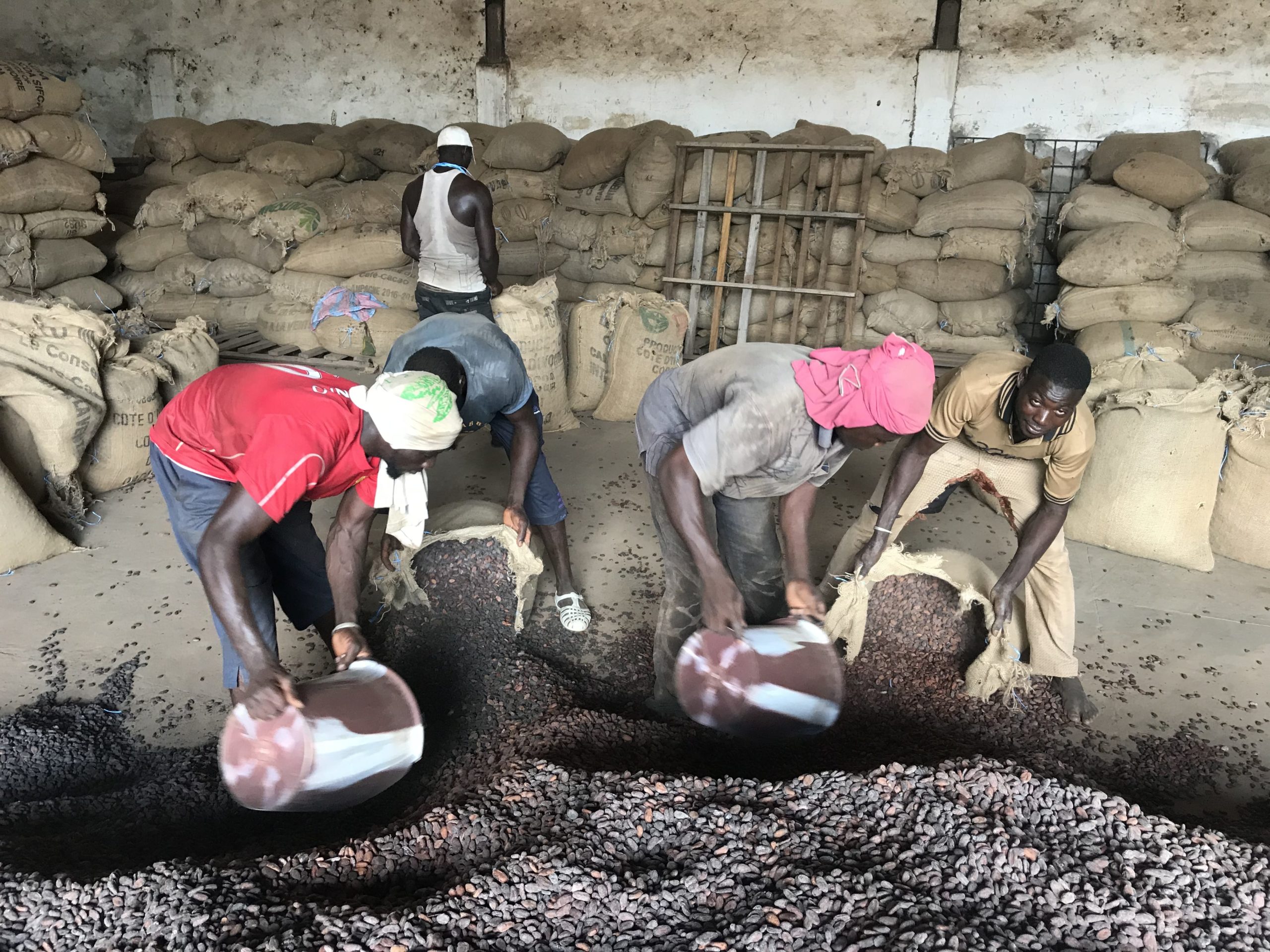
Meet “Chocopec” – Can a new minimum price give cocoa farmers a living income?
Mighty Earth welcomes efforts to raise incomes for cocoa smallholders, but calls for a higher bar, measures to protect farmers, and inclusion of farmers in negotiations
Last week, Côte d’Ivoire and Ghana banded together and announced they would set a minimum price for cocoa in a bid to finally give cocoa farmers a living income. The two West African countries, which supply around 65 percent of the world’s cocoa, declared they would set a floor price of $2,600 per metric tonne of cocoa beans.
If implemented correctly, a minimum price could protect farmers from dire poverty and fluctuations in the cocoa market, like when the price of cocoa abruptly fell by 30 percent three years ago, leaving many farmers struggling desperately.
Mighty Earth calls on each and every cocoa trader and chocolate manufacturer to stand up and be counted at this critical juncture, and commit to paying a just price for cocoa, one that guarantees cocoa farmers a living income and a life of dignity. We also call on certification bodies like the Rainforest Alliance to put in place matching minimum pricing, and address the living income problem as explained in this position paper by the Voice network, of which Mighty Earth is a member.
Mighty Earth stands firmly for a living income, and like the ICCO we hope the minimum price will be set higher than $2,600. We decry the fact that cocoa farmers typically earn less than $1 per day as an injustice. To quote Bryan Stevenson: “the opposite of poverty is not wealth. The opposite of poverty is justice.”
Timing will be key. Côte d’Ivoire and Ghana finally got tough with the $100 billion industry on June 11-12, declaring that they are suspending forward sales of cocoa beans for 2020-1 until their floor price of US$2,600 is met. A technical committee meeting will be held in Abidjan on July 3 to work out the modalities. The clock is now ticking for chocolate companies to make their pledges before July 3 and commit to paying a minimum price.
Currently, cocoa farmers’ income is low compared to the profit made by the chocolate industry:

Cocoa cultivation has been synonymous with extreme poverty, is widely associated with child labor, trafficking, and slavery, and has resulted in significant destruction of ancient rainforests, including illegal deforestation inside national parks. A Fairtrade study in April 2018 showed that 58 percent of Fairtrade certified cocoa farming households in Côte d’Ivoire had incomes below the extreme poverty line. Economic hardship is a major reason why roughly 2.1 million children work in cocoa, 96 percent of whom are thought to be in hazardous labor, according to a 2015 study by researchers at Tulane University. A new study published this month by researchers at University of Arkansas and Kansas State University calculated that Ghana could keep children out of cocoa by increasing the price farmers receive by about 50 percent, but that paying even just 3 percent more could potentially stop children from engaging in the most hazardous tasks, like using machetes.
Mighty Earth is not alone in wanting to see a floor price. Fairtrade also welcomed the decision by Côte d’Ivoire and Ghana. “We believe in sharing the benefits of trade more equally, and welcome this move by the governments to shore up cocoa farmers’ incomes” said Jon Walker, Fairtrade International’s Senior Advisor for Cocoa. In October 2019, Fairtrade International announced its minimum price for cocoa would increase by 20 percent to $2,400 per metric tonne. The ICCO director Michel Arrion welcomed the development though he expressed surprise that the floor was too low, since a floor price of US$2,600 is not enough to achieve a living income.
Mighty Earth appreciates the World Cocoa Foundation current position that member companies are encouraged to see an increased share of the global cocoa price transferred to farmers in the government-regulated farmgate price – and Mighty calls on the WCF and its member companies to now agree to pay a fair price for cocoa.
Ultimately though, the devil is in the details. When implementation of a floor price is mapped out, farmers must be the ultimate beneficiaries – not middlemen or the authorities. Farmers need not only a floor price, but also increased public sector investment in transportation, logistics, and trade-related infrastructure, development help for farming communities, better access to education and health, and transparency in government services. Most of all, farmers must be consulted fairly, transparently, and respectfully. Mighty Earth shares the World Cocoa Farmers Organization’s concern that cocoa farmers, whose lives are at stake, were not duly involved during deliberations leading up to the Ivorian and Ghanaian decision about a floor price. Mighty Earth also calls on governmental authorities and aid agencies to ensure that the suspension of cocoa sales does not negatively impact lives of millions of cocoa farmers, pending the industry agreeing to producer country demands. No one wants farmers and their families to go hungry, or for the industry to be able to use farmers’ misery as a hostage, in negotiations around a floor price.
Going forward it will also be key to ensure that increased prices don’t incentivize further conversion of forest land for cocoa production by Ivorian and Ghanaian smallholder farmers. Côte d’Ivoire and Ghana have already lost over 90 percent of their forests, and in 2018 had the two most severe increases in rates deforestation worldwide. What little forests remain must be vigilantly protected for future generations.

—
Ghanian NGOs:
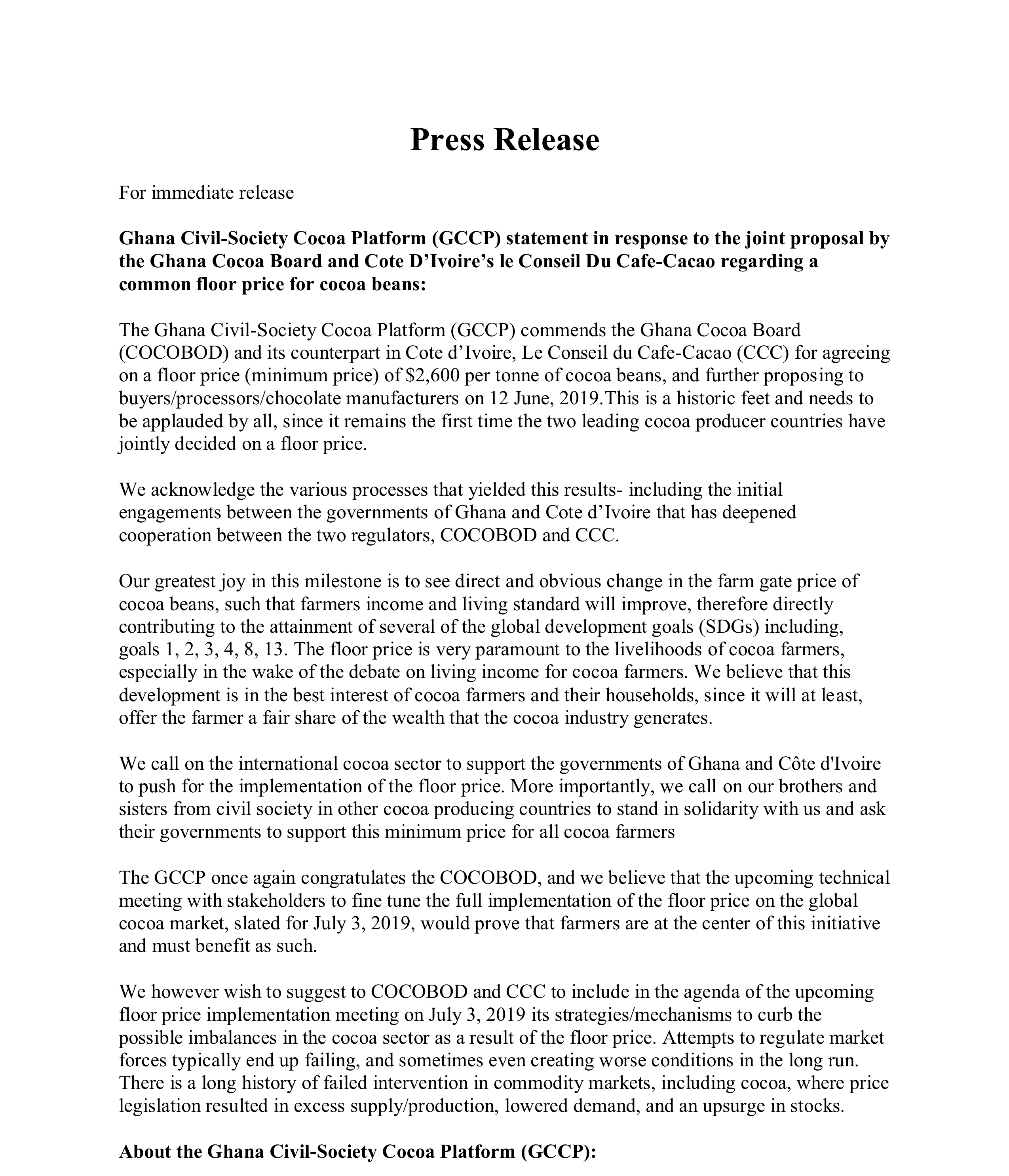
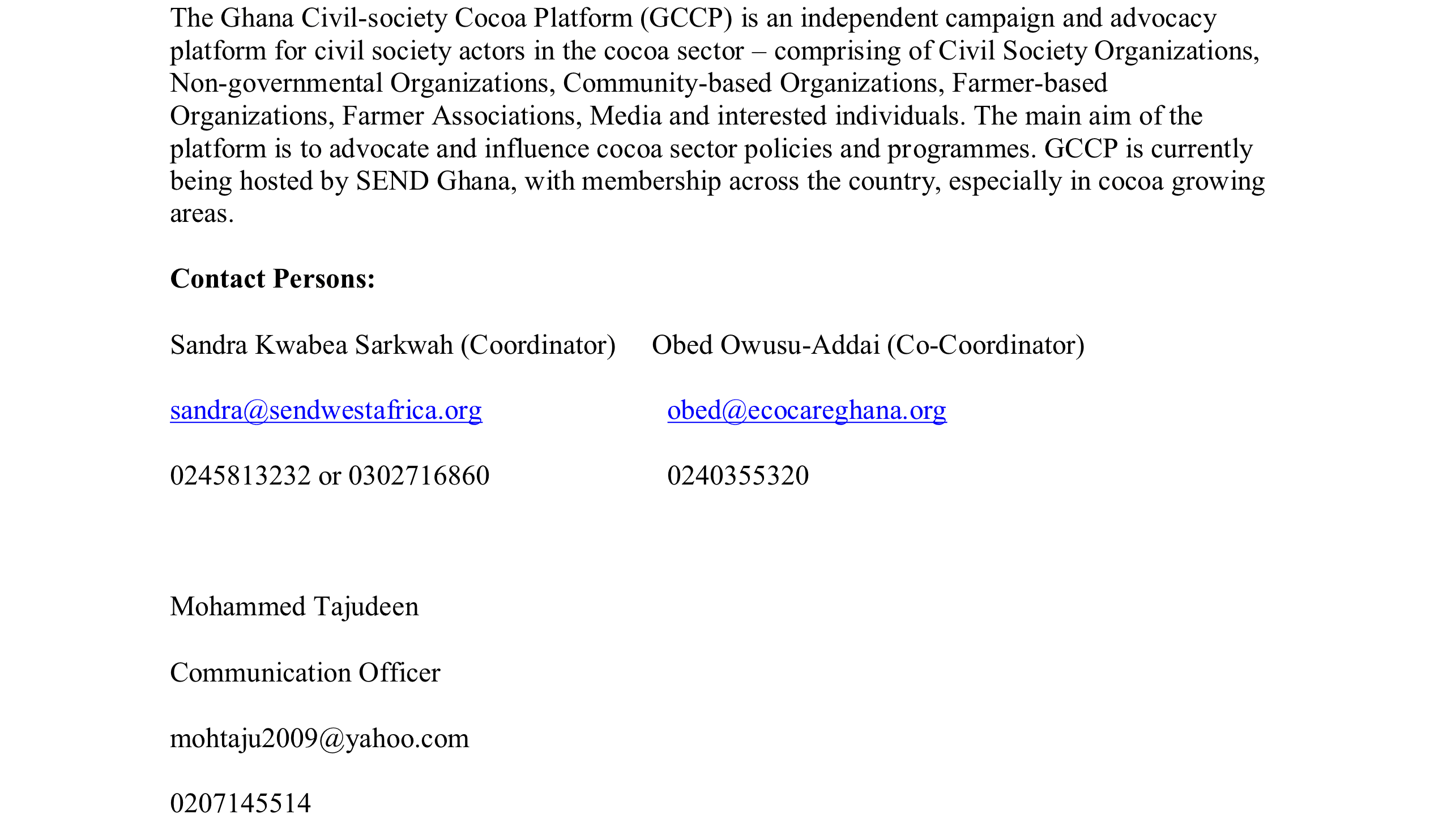
Cameroonian NGOs:


International NGOs
